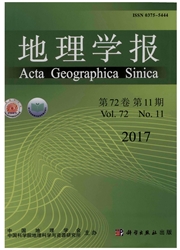

 中文摘要:
中文摘要:
改革开放后广州对外贸易持续快速增长,吸引了大批外籍人士迁入,其中日本移民的增长尤为显著。本文以问卷调查和半结构化访谈的方法,对居住在广州市的日本移民的生活活动空间进行研究。从宏观上探讨其聚居形态,从微观上把握其居住、购物、饮食、教育、交友等生活活动的空间行为特征及其制约因素。研究表明,在广州的日本移民主要为受企业派遣的旅居移民及其家属,其生活活动空间相对孤立和封闭。促成其封闭性或源于两方面因素:一是由于多语言环境、针对移民的政策法规及社会保障制度缺失等制度环境的影响,二是由移民的生活习惯及民族性格所造成的文化特性使然。日本移民的生活空间具有主动集聚和被动隔离的特征,而提高城市的国际化水平有助于增加其选择机会,减少封闭性的形成。
 英文摘要:
英文摘要:
Market reform and opening-up policies stimulate the rapid and sustained growth of the foreign trade in some coastal cities of China,and bring a large number of foreigners into China for business.Japanese transnational migrants,especially,is an important group in this trend.This paper focuses on the Japanese expatriates in Guangzhou,taking Garden Hotel,Guangdong International Hotel and CITIC Plaza as study spots.It mainly makes efforts to shed light on the features of their living space as well as the underlying mechanism.After a short description of Guangzhou's exporting economy,the booming of Japanese-funded enterprises is examined.Under a macroscopic lens,based on the data sourced from real estate agents,eight Japanese 'spots agglomeration' were identified: Huadu,Baiyun-Liuhua,Huanshidong,Tianhebei,Zhujiang New Town,Ersha island,Panyu and Zengcheng,where at least hundreds of Japanese are living in the relatively agglomerated areas.On the other hand,under a microscopic and experience scale,this study uses both questionnaires and semi-structured interviews as the main methods.Questionnaires target on Japanese expatriates and their wives(housewives) who are now living or working in the foregoing three study spots,inquiries range from living conditions,daily consumption,commuting,and education to social intercourse.A total of 34 questionnaires have been collected and available.Moreover,14 semi-structured interviews in total have been conducted.It is shown that Japanese expatriates in Guangzhou,whose characteristics are reflected by the typical individual daily life,have been transforming into an isolated ethnic group.There are two pivotal factors for this result: one is due to the institutional restrictions which originated from the lack of multi-language environment,policy/law and social welfare system for immigrants,which hinder the social integration of Japanese expatriates in China.The other is owing to the differences in cultural identity originated from the habits/customs and national characteri
 关于刘云刚:
关于刘云刚:
 同期刊论文项目
同期刊论文项目
 同项目期刊论文
同项目期刊论文
 期刊信息
期刊信息
